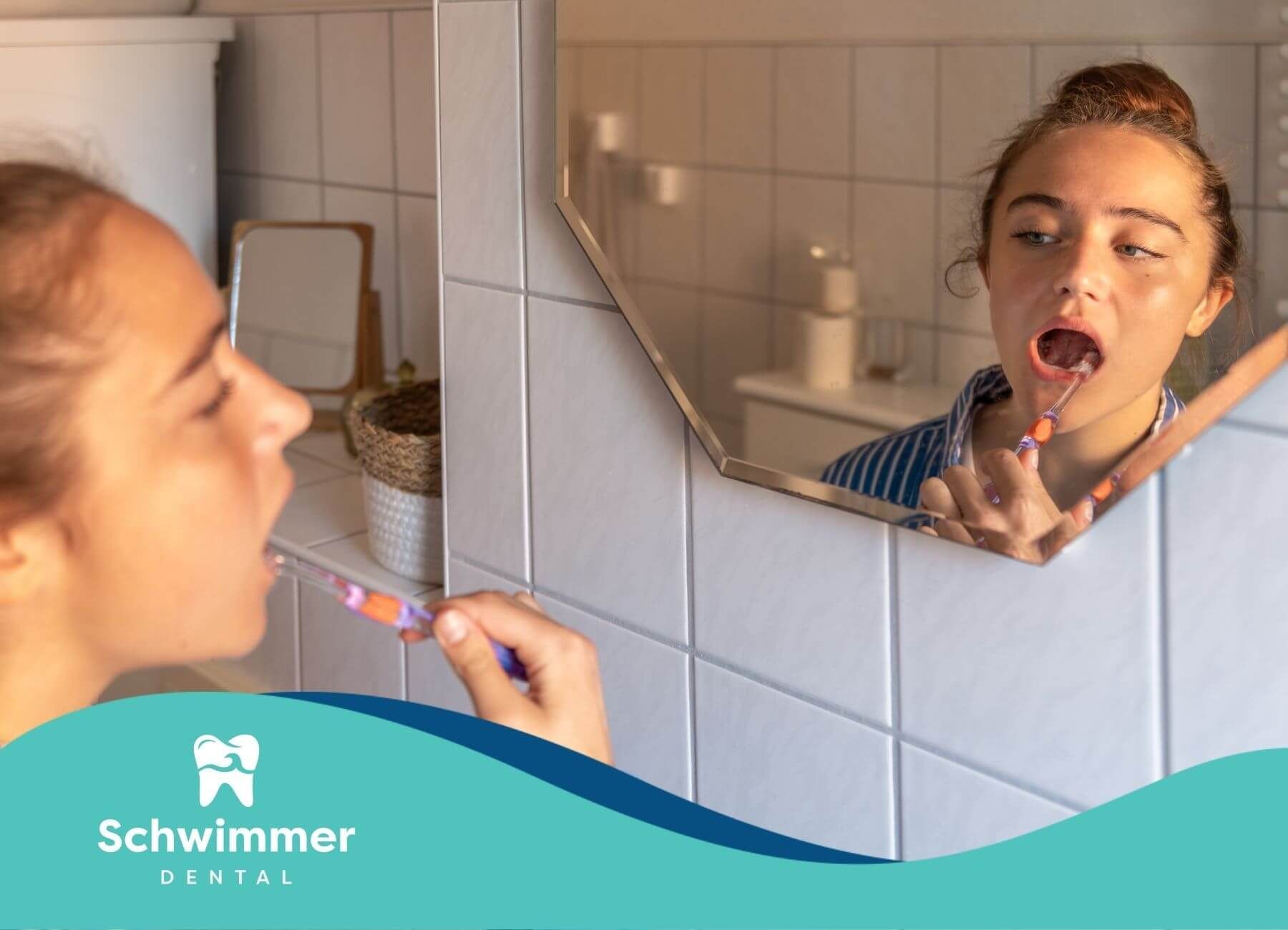The Battle Against Dental Plaque: What You Need to Know
Maintaining good oral health is very important for your overall well-being. To achieve this, it is essential to understand dental plaque. Dental plaque is a sticky film that builds up on our teeth. It can harm our oral health by creating a place for bad bacteria to grow. This growth can lead to tooth decay and many gum diseases. This blog post will explain what dental plaque is, why it matters, and how you can effectively fight it.
Understanding Dental Plaque
Dental plaque, or dental biofilm, is not just leftover food. It is home to millions of bacteria. These tiny organisms feed on the sugary and starchy bits left on our teeth from what we eat and drink. As they snack, they release acids, which can harm our oral health.
The acids from plaque bacteria attack our teeth' hard outer layer called enamel. Over time, this acid can weaken the enamel, causing erosion and cavities. But that’s not all; plaque can also upset the gum tissue. This can lead to swelling and early signs of gum disease.
The Science of Plaque Formation
Plaque formation happens all the time, starting right after we eat or drink. Within a few minutes, a sticky film forms on our teeth. This film is made of saliva, food particles, and bacteria. It helps bacteria attach and grow.
As the bacteria grow, they create acids through their metabolism. These acids, especially lactic acid, can wear down tooth enamel. If we do not take care of this, the cycle of acid production and enamel loss leads to cavities. This can weaken our teeth over time.
Good oral hygiene is very important to break this cycle. Regular brushing and flossing can remove food particles and bacteria. This helps prevent the harmful plaque film from forming on our teeth.
Identifying Plaque on Your Teeth
Plaque is usually colorless, but it can sometimes look pale yellow. The easiest way to check for plaque is by feeling your teeth. If they feel fuzzy or rough when you run your tongue over them, you likely have plaque buildup.
Bleeding gums while brushing or flossing is another sign of plaque. This happens because the bacteria in plaque irritate your gums. This irritation can cause inflammation, making gums bleed more easily. It's important to take bleeding gums seriously because it can mean early gum disease.
Also, if you have bad breath that doesn't go away after brushing, it could indicate plaque buildup. The bacteria in plaque release smelly compounds as they break down food particles in your mouth. If your bad breath persists, see your dentist to rule out any dental issues.
Effective Strategies for Plaque Removal
The good news is that you can mostly prevent plaque buildup by following good oral hygiene habits. When you add simple daily routines and go to the dentist, you can fight plaque and keep your smile healthy and bright.
Here are some key ways to fight plaque and make sure you stay on track with your oral health.
Daily Habits to Minimize Plaque Buildup
The best tools you have against plaque are the daily habits you build. Here’s how to protect your teeth every day:
- Regular Brushing: You should brush your teeth at least twice a day. Each time, do it for two full minutes. A soft-bristled toothbrush and fluoride toothpaste will help clear away food particles and stop plaque from forming.
- Flossing is Fundamental: Flossing matters a lot! Floss every day to get to the tight spaces between your teeth that a toothbrush can’t reach. This keeps your teeth clean and limits plaque buildup.
- Sugarless Gum to the Rescue: Chewing sugarless gum after meals can help. It makes more saliva, which helps clean your mouth. Some sugarless gum types can even fight off the acids made by plaque bacteria.
Professional Dental Interventions
While daily habits are your first line of defense, professional dental interventions are essential reinforcements in your battle against plaque.
Maintaining optimal oral health requires a proactive approach to plaque control. Regular professional cleanings are crucial to remove plaque and tartar buildup that can't be reached with daily brushing and flossing. Finding a qualified dentist for regular
dental cleaning near me is essential for preventing cavities and gum disease.
| Intervention | Description |
|---|---|
| Professional Cleaning | During your regular dental checkups (recommended every six months), your dental professional will perform a thorough cleaning, removing plaque and tartar buildup that's beyond the reach of your toothbrush and floss. |
| Dental Calculus Removal | If plaque hardens and transforms into dental calculus (tartar), it requires professional removal. Your dental hygienist uses specialized instruments to safely and effectively remove tartar, preventing further damage to your teeth and gums. |
| Addressing Underlying Conditions | If you're prone to dry mouth or other conditions that increase the risk of plaque buildup, your dentist can recommend appropriate treatments or strategies to manage these conditions, bolstering your defenses against plaque. |
Conclusion
To keep your smile healthy, it is important to understand and tackle dental plaque. Plaque can lead to more serious dental problems if you ignore it. Daily habits are important to reduce plaque buildup. It is also key to visit a dentist for professional plaque removal. Regular care and good hygiene help control plaque. If you are worried about plaque buildup or have questions about your oral health, reach out to our experts. They can give you personalized help and solutions. Your smile deserves the best care!
At Schwimmer Dental in New Jersey, we understand the importance of effective plaque control for optimal oral health. Our experienced team provides comprehensive dental cleanings and personalized oral hygiene instructions to help you effectively combat plaque buildup. We're committed to helping you maintain a healthy smile and prevent future dental issues. Schedule a check-up today and experience the Schwimmer Dental difference."
Frequently Asked Questions
How can I tell if I have plaque buildup?
If your teeth feel fuzzy or rough when you touch them with your tongue, it could mean you have dental biofilm. Other signs to look for are a pale yellow or colorless film on the surfaces of your teeth, bad breath, and bleeding gums. If you see food debris stuck between your teeth, you might have plaque buildup.
Can plaque lead to more serious dental issues?
Yes, untreated plaque can cause tooth decay and gum disease. In more serious cases, gum disease, which is also called periodontal disease, can lead to major problems and even tooth loss. These health issues can affect your overall well-being.
What are the best tools for fighting plaque at home?
Use a soft-bristled toothbrush and fluoride toothpaste for good dental hygiene. Floss every day to get rid of plaque and food particles. Add an antiseptic mouthwash to your routine. Also, try to eat less sugary foods and starchy foods to reduce plaque buildup.
Source:
https://www.nidcr.nih.gov/health-info/oral-hygiene
https://my.clevelandclinic.org/health/diseases/10953-plaque#:~:text=Dental%20plaque%20is%20a%20sticky%20film%20of%20bacteria%20that%20constantly,and%20other%20oral%20health%20issues.
https://pubmed.ncbi.nlm.nih.gov/12787195/#:~:text=The%20development%20of%20plaque%20is,spirochetes%20into%20a%20cohesive%20biofilm.
https://www.medicalnewstoday.com/articles/324341
https://www.greenponddental.com/



